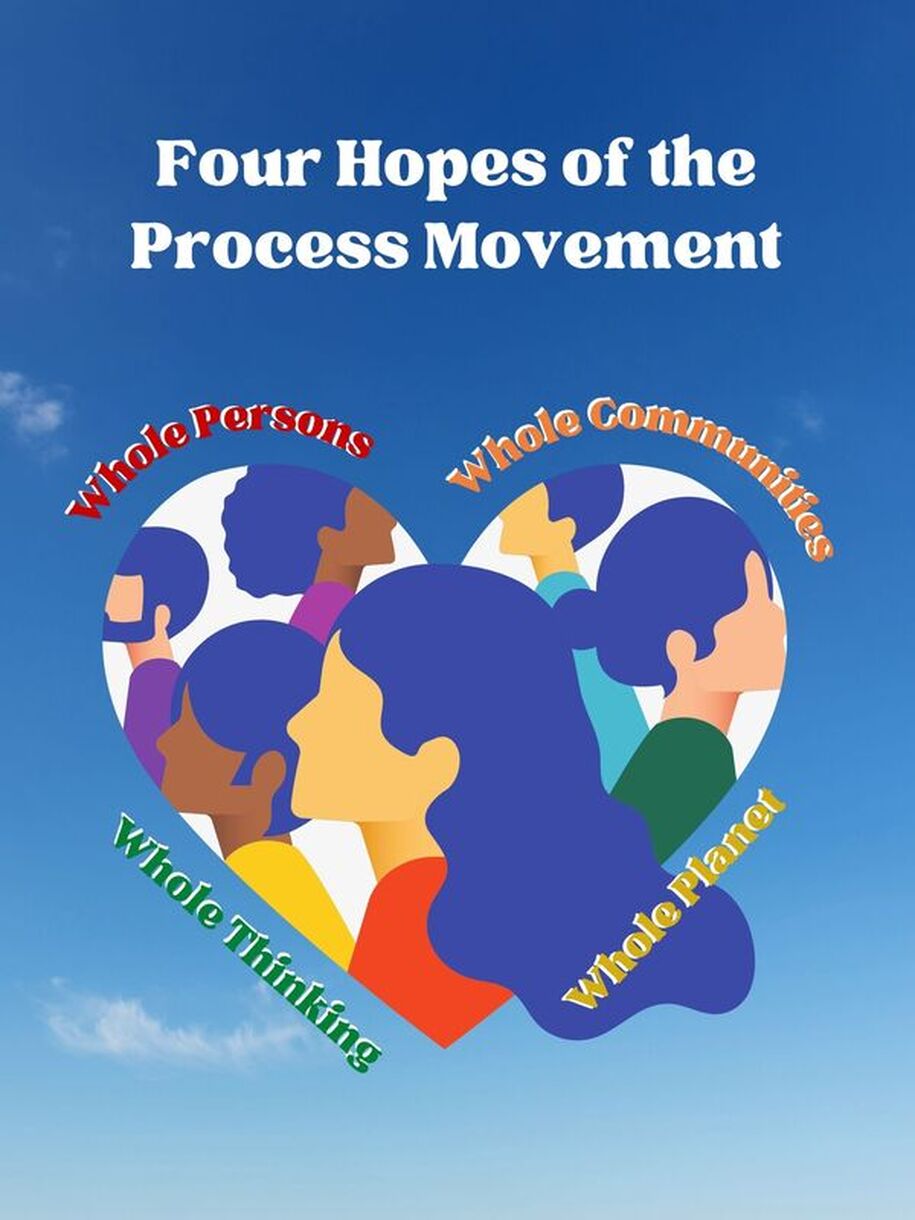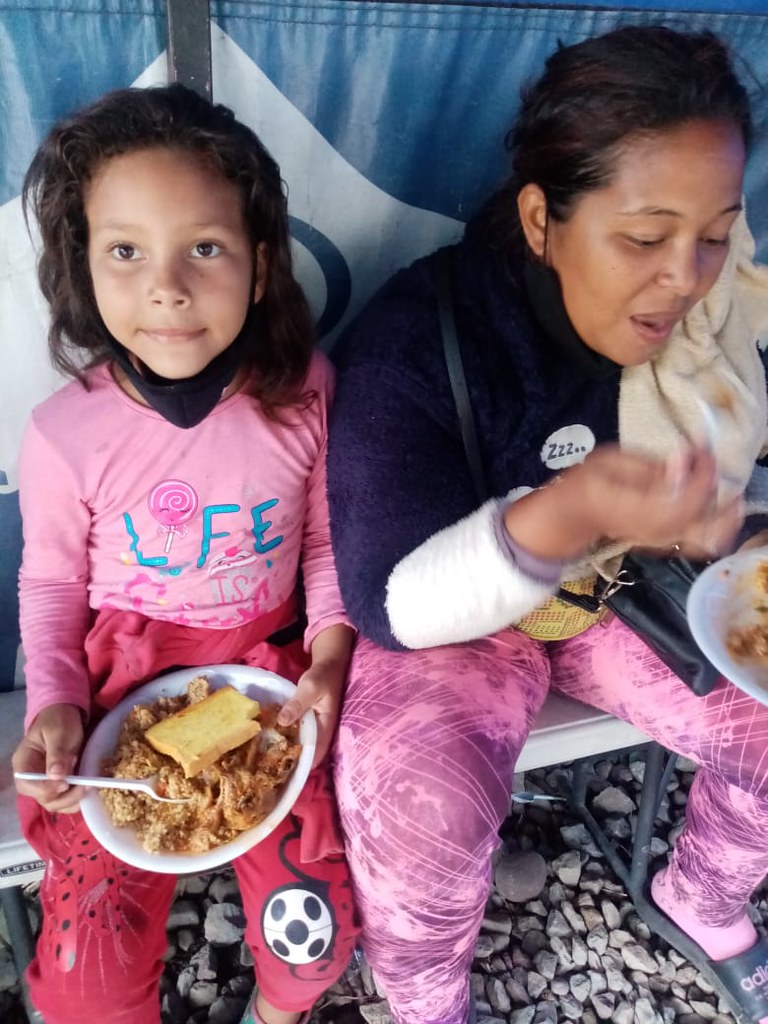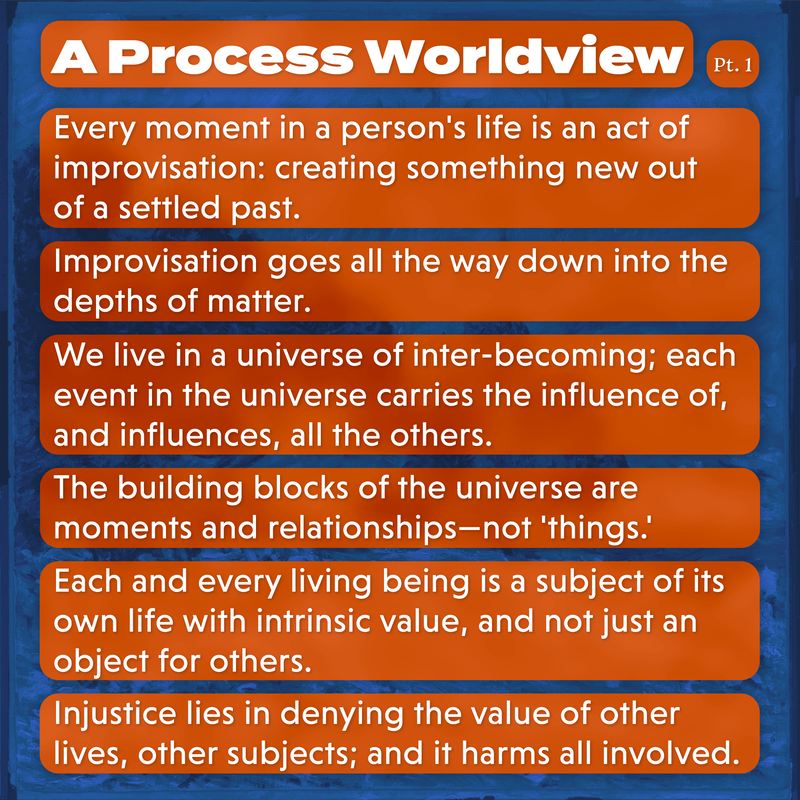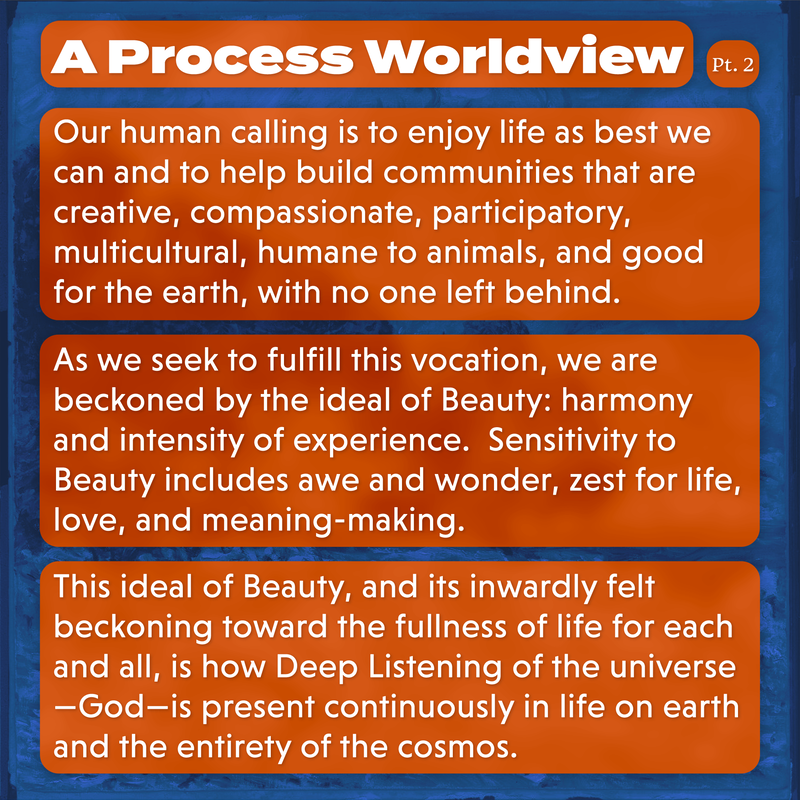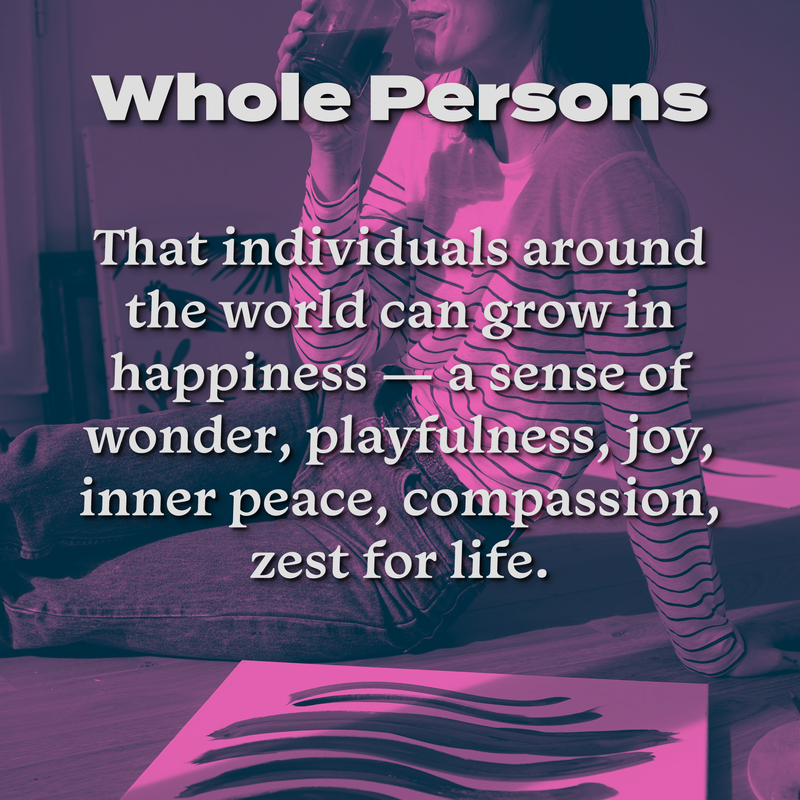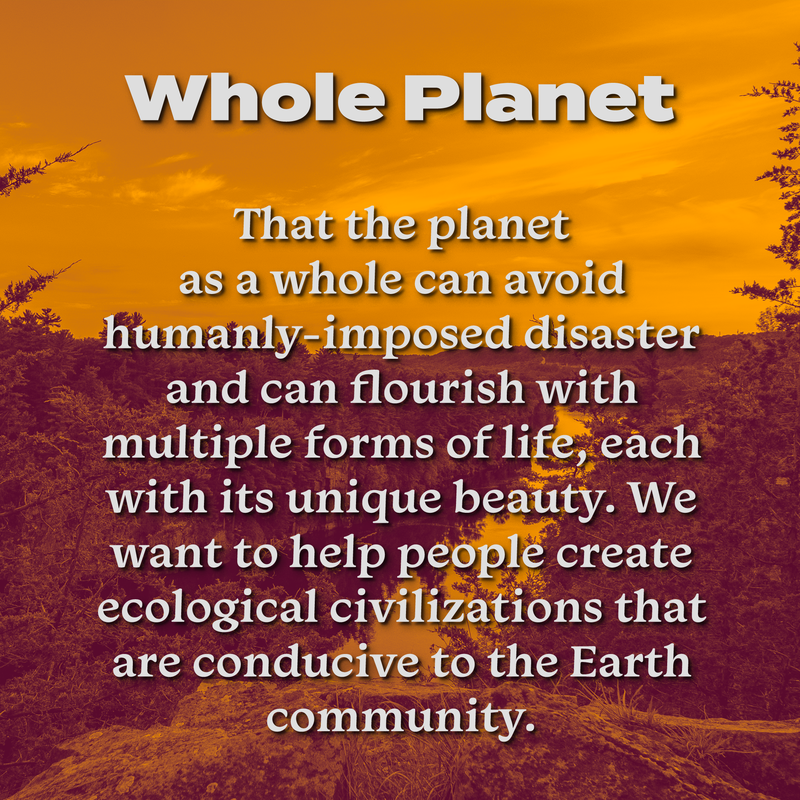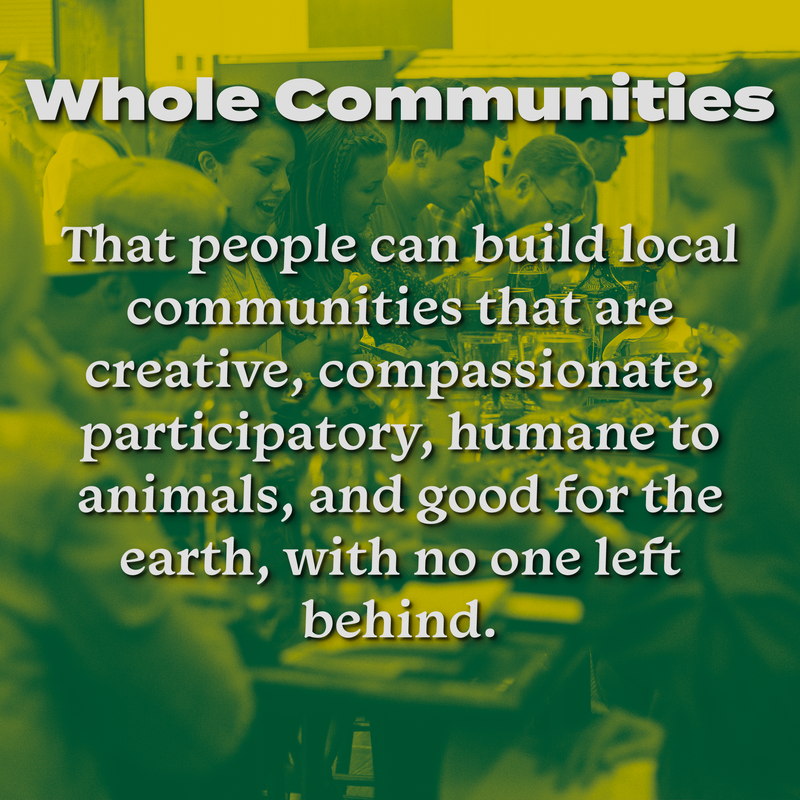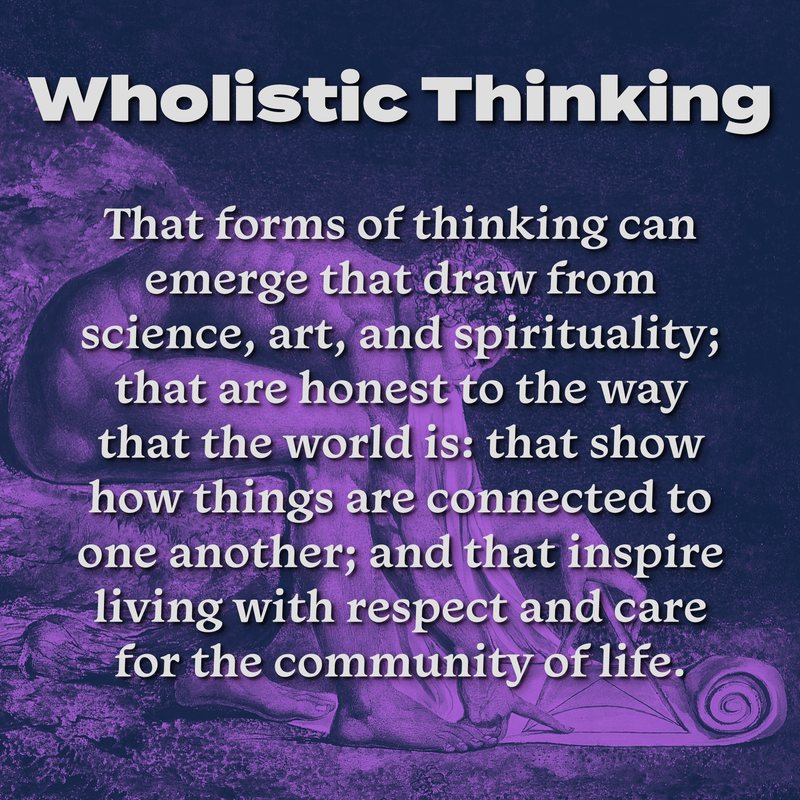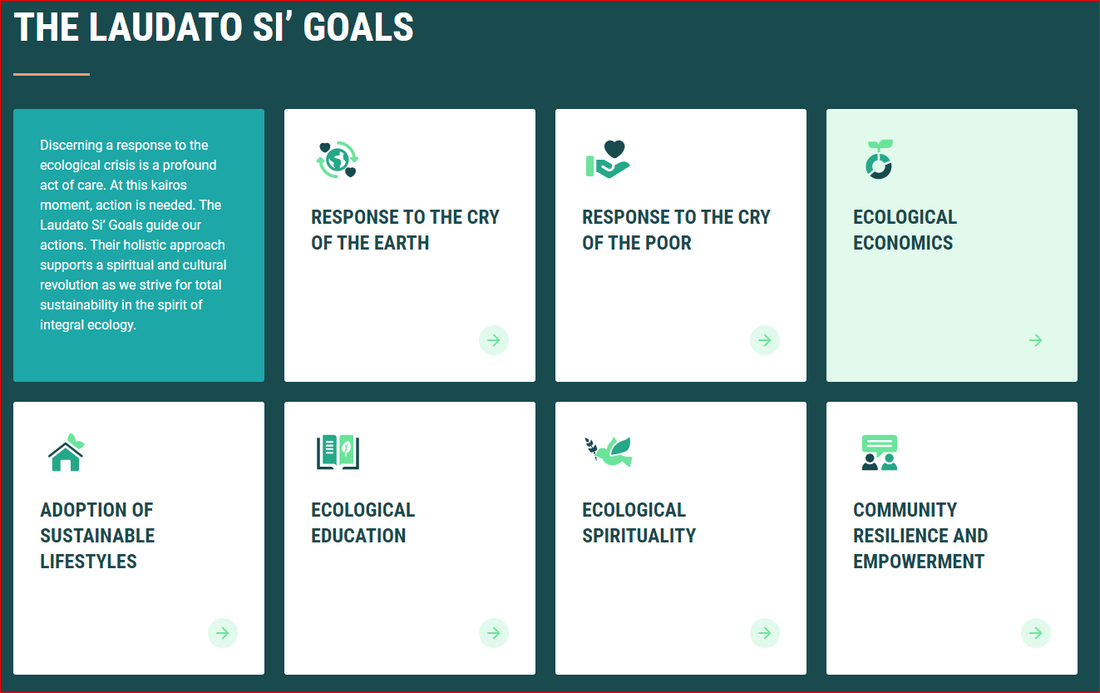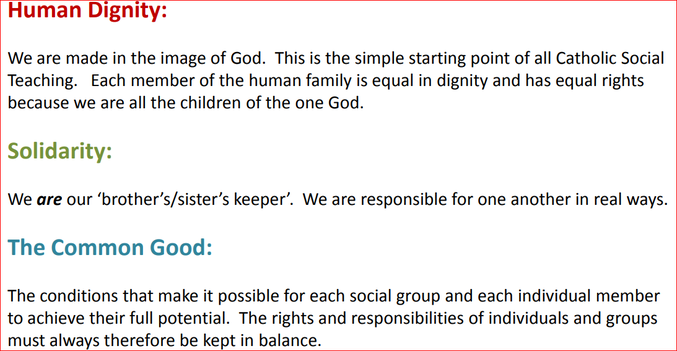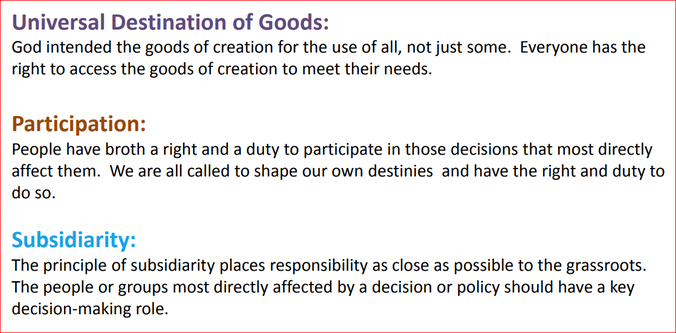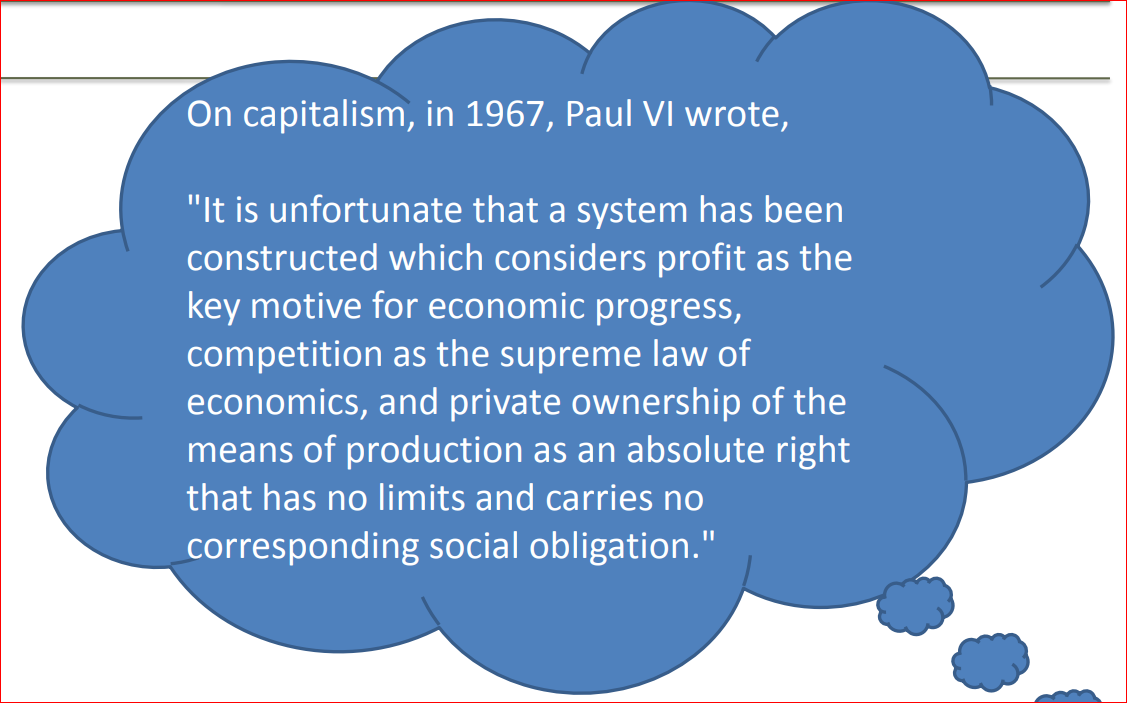- Home
- Process Worldview
- Community
- Art and Music
- Whitehead and Process Thinking
- Podcasts
- Spirituality
- Ecological Civilization
- Education
- Contact
- Social Justice
- Science
- Animals
- Sacred Poems
- Whitehead Videos
- Index of All Titles
- Practicing Process Thought
- Process Spirituality: A Spiritual Alphabet
- Recent Posts
Seeking an Integral Ecology
Process Thought, Catholic Social Teaching, and Laudato si'
see also "The Personal Qualities of a Truly Christian Politician"
When it comes to practicing process thought in daily life, I find support from many sources, apart from which process thought is merely an interesting worldview.
For example, I often turn to the spiritual alphabet of Spirituality and Practice for guidance in what it can mean to be spiritually awake in a crazy world. Their alphabet - "A" is for attention, "B" is for beauty, "C" is for connection, etc. - reminds me of qualities of heart and mind that I seek for myself and others. And I turn to the general principles of the Earth Charter for guidance in what it means to hear and respond to the cry of the earth and cry of the poor in concrete settings, politically and economically.
Two additional guides are Catholic Social Teaching in general, and Pope Francis' two encyclicals: Laudato si' and Fratelli Tutti. I am especially helped by seven principles of Catholic Social Teaching and seven markers for measuring the implementation of Laudato Si, as adumbrated below. And, yes, it looks like the Catholics have a penchant for sevens.
The purpose of this page is to offer a single page that presents Process Thought, Catholic Social Teaching, and the action plan of Laudato Si, side-by-side, in ways that enable readers to draw their own conclusions and, as it were, connect the dots. My suggestion is that Process Thought, Catholic Social Teaching, and Laudato Si are partners in hope. Both point toward an integral ecology in which we live in harmony with people, other animals, and the Earth.
- Jay McDaniel, 12/11/2021
For example, I often turn to the spiritual alphabet of Spirituality and Practice for guidance in what it can mean to be spiritually awake in a crazy world. Their alphabet - "A" is for attention, "B" is for beauty, "C" is for connection, etc. - reminds me of qualities of heart and mind that I seek for myself and others. And I turn to the general principles of the Earth Charter for guidance in what it means to hear and respond to the cry of the earth and cry of the poor in concrete settings, politically and economically.
Two additional guides are Catholic Social Teaching in general, and Pope Francis' two encyclicals: Laudato si' and Fratelli Tutti. I am especially helped by seven principles of Catholic Social Teaching and seven markers for measuring the implementation of Laudato Si, as adumbrated below. And, yes, it looks like the Catholics have a penchant for sevens.
The purpose of this page is to offer a single page that presents Process Thought, Catholic Social Teaching, and the action plan of Laudato Si, side-by-side, in ways that enable readers to draw their own conclusions and, as it were, connect the dots. My suggestion is that Process Thought, Catholic Social Teaching, and Laudato Si are partners in hope. Both point toward an integral ecology in which we live in harmony with people, other animals, and the Earth.
- Jay McDaniel, 12/11/2021
What is Integral Ecology?
Integral Ecology is a state-of-affairs that can be embodied in individual lives, families, neighborhoods, cities, nations, and states. It is a harmony between people and one another, people and the earth, people and the heavens. The phrase was coined by Pope Francis and is now used by many in the world to name the world's best hope.
Process Thought and its Four Hopes
A process outlook on life can be internalized, embodied, and enriched by many different cultural and religious traditions: Jewish, Christian, Muslim, Buddhist, Hindu, Daoist, Confucian, Naturalist, Eco-Humanist, Pagan and None-of-the-Above. We in the process community have different ways of interpreting the ideas above. We share four hopes for an "integral ecology."
A Worldwide Movement
Laudato Si Action Platform
Seven markers for measuring the implementation of Laudato Si’
To help individuals and communities become more sustainable, the Holy See’s Dicastery for Promoting Integral Human Development names seven markers that help to measure the implementation of Laudato Si’. These markers are used in our Action Plan as a way to promote integral ecology in Laudato Si’s implementation here in our own archdiocese.
- from the Roman Catholic Archdiocese of Washington
Seven markers for measuring the implementation of Laudato Si’
To help individuals and communities become more sustainable, the Holy See’s Dicastery for Promoting Integral Human Development names seven markers that help to measure the implementation of Laudato Si’. These markers are used in our Action Plan as a way to promote integral ecology in Laudato Si’s implementation here in our own archdiocese.
- Response to the Cry of the Earth: greater use of clean renewable energy and reduction of fossil fuels in order to achieve carbon neutrality efforts to protect and promote biodiversity guaranteeing access to clean water for all, etc.
- Response to the Cry of the Poor: defense of human life from conception to death and all forms of life on Earth, with special attention to vulnerable groups such as indigenous communities, migrant children at risk through slavery, etc.
- Ecological Economics: sustainable production, Fair Trade, ethical consumption, ethical investments, divestment from fossil fuels and any economic activity harmful to the planet and the people, investment in renewable energy, etc.
- Adoption of Simple Lifestyle: sobriety [intense focus] in the use of resources and energy, avoid single-use plastic, adopt a more plant-based diet and reduce meat consumption, greater use of public transport and avoid polluting modes of transportation, etc.
- Ecological Education: re-think and re-design educational curricula and educational institution reform in the spirit of integral ecology to create ecological awareness and action, promoting the ecological vocation of young people, teachers and leaders of education, etc.
- Ecological Spirituality: recover a religious vision of God’s creation, encourage greater contact with the natural world in a spirit of wonder, praise, joy, and gratitude, promote creation- centered liturgical celebrations, develop catechesis prayer, retreats, formation, etc.
- Emphasis on Community Involvement and Participatory Action: to care for creation at the local, regional, national and international levels (promote advocacy and people’s campaigns, encourage rootedness in local territory and neighborhood ecosystems, etc.)
- from the Roman Catholic Archdiocese of Washington
|
|
|
